ENDURING QUESTIONS: USING CHILDREN’S LITERATURE IN CLASSROOMS (Rowman & Littlefield Publishers, 2022) by David Bloome, Evelyn B. Freeman, Rosemary Horowitz, and Laurie Katz is an educational text that guides teachers on how to use Jewish children’s books that explore history, tradition, and values in preschool and elementary school curricula. Featuring resources, suggested book lists, real-world application suggestions, and more, ENDURING QUESTIONS is a must-have for educators. I am delighted to learn more about the creation of this wonderful resource. Welcome, authors!
How did you develop the idea of creating a book to help teachers incorporate Jewish books in the classroom?
We had been thinking about this book for over a decade. In conversations with teachers at National Council of Teachers of English (NCTE), we found that there were few Jewish children’s literature books in classrooms and in university children’s literature courses despite the numerous and wonderful Jewish children’s literature books available. So, this started out as a project of the NCTE Jewish Caucus with many presentations over the years and the encouragement that people at NCTE gave us to write a book. Our own children and grandchildren experienced the same lack of high-quality Jewish children’s literature in their classrooms, and we wanted to create awareness for the books and promote their use in classrooms.
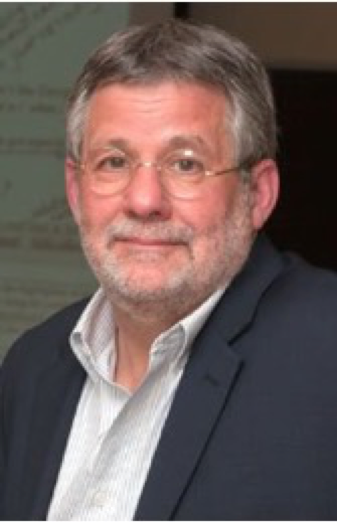
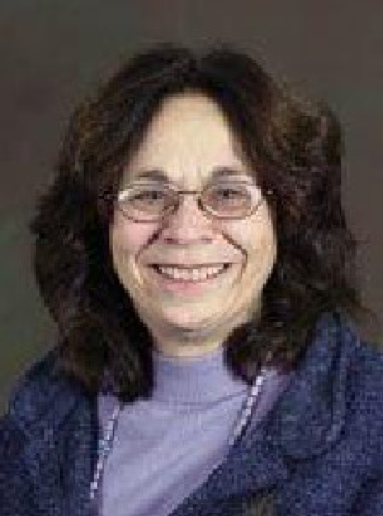
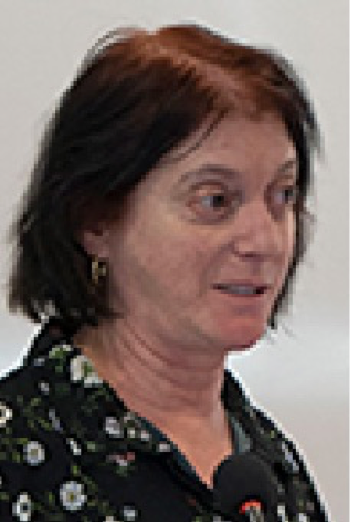
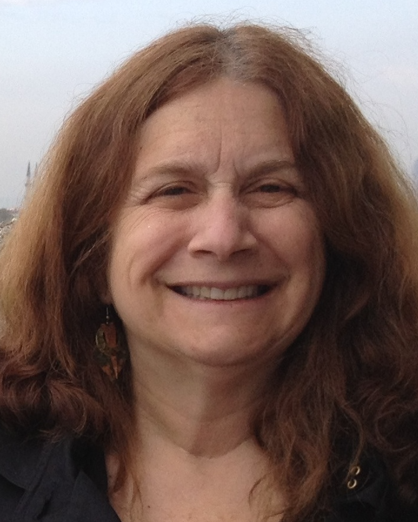
How did you choose the books to feature in ENDURING QUESTIONS?
Books needed to be in-print so that teachers could easily have access to them. We chose books that were of high quality and authentically portrayed the Jewish experience. We also wanted books that lent themselves to enduring questions and that showed the diversity of Jewish experience and the diversity of Jews. Our focus was on books for preK through 6th grade. We examined the various lists of Jewish children’s literature that had been published, the lists of award winners from Sydney Taylor and Association of Jewish Library lists. We also reviewed Jewish related children’s books that had won other kinds of awards like the Newbery, Caldecott, Batchelder, etc. We consulted anthologies of high quality Jewish children’s literature, as well as looking at well-known Jewish children’s authors such as I. L. Peretz, and Isaac Bashevis Singer.
What was the process for writing the book with multiple authors?
We were all committed to the project and enjoyed working together. We had wonderful discussions sharing books and talking about them. We initially each took leads on different parts, then gave each other feedback and further discussed them. After many revisions, we all re-wrote to ensure there was a single “voice” throughout. Just before we sent the book to the publisher, our close and dear friend, Rosemary Horowitz, who was one of the authors, tragically died. We have different areas of strength that complement each other: expertise in the field of children’s literature, expertise in Yiddish literature and Jewish history and culture, expertise in early childhood education, and expertise in literary analysis and Holocaust studies. We all had expertise working with classroom teachers and it was a focus of our writing to have P-6 classroom teachers be the target audience as well as teacher educators who taught courses in children’s literature and Jewish children’s literature. We invited teachers from across the country, teaching in diverse settings—public schools, private independent schools, Jewish day schools, and a private Christian school—to share a Jewish children’s book in their classroom and write a short vignette. We were gratified that 18 teachers did this and their vignettes appear in the book.
Do you plan to update Enduring Questions as more books are published?
An update to the book will need to be done in the next 3 to 5 years. We are unsure at this time whether we will tackle that task as the same team or form a new team or whether there will be another team that would be well positioned to update the book. We will be addressing this task in the next year or so. Of course, such a project also depends on the desires of the publisher.
Do you offer workshops or training for educators to go along with this volume?
We have given workshops to schools, synagogues, educational institutes, and other places. People who might be interested in having us do a talk or workshop should contact any one of us:
David Bloome: davidbloome@gmail.com
Evelyn B. Freeman: freeman.5@osu.edu
Laurie Katz: katz.124@osu.edu
For authors and creators, did you find any holes that need to be filled – books you would love to see published?
There continues to be a need for more Jewish children’s literature in which Jews of Color are the protagonists, in which Jews and Jewish children who are LGBTQ+ are the protagonists, in which Jews with disabilities are the protagonists, and in which Sephardic and Mizrachi Jews are the protagonists. While there are some wonderful books that address these areas, there is a pressing need for many more. There are also few Jewish children’s literature books that address Jewish life during the Spanish Inquisition and the inquisitions in Italy, etc.
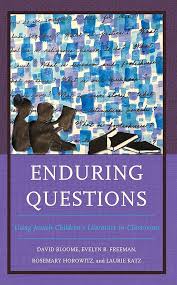
How do you envision these books being used in a public school classroom?
It is our hope that every classroom (public and non-public) would have an extensive and rich multicultural collection of high-quality children’s literature. We view Jewish children’s literature as being part of such a rich, diverse literature collection in each classroom. It is also our hope that the books we have discussed in our book and other books from a multicultural children’s literature collection would be used to engage children in deep conversations about what we have called “enduring questions” – deep philosophical questions that all of us can use to contemplate how we might live in the world together and pursue peace and justice (tikkun olam).
Thank you, authors!
David Bloome is professor emeritus in the Department of Teaching and Learning of The Ohio State University College of Education and Human Ecology. For more than four decades he has been researching and writing about the teaching of reading and writing and the use of reading and writing in people’s lives. Prior to his university career, he was a classroom teacher at the middle school and high school level. He is a former president of the National Council of Teachers of English and of the National Conference on Research in Language and Literacy. In 2008, Bloome was inducted into the Reading Hall of Fame. He is the co-author or co-editor of twenty books on language and literacy in education, and author or co-author of more than 100 journal articles and book chapters.
Evelyn B. Freeman is professor emerita at The Ohio State University where she taught courses in children’s literature and language arts, prepared elementary teachers, and worked with graduate students. She retired as dean and director of The Ohio State University at Mansfield. During her appointment, she also served as executive dean for Ohio State’s regional campuses. She has served as co-editor of the Journal of Children’s Literature, for which she received the James P. Barry Ohioana Award for Editorial Excellence, and Bookbird: A Journal of International Children’s Literature. She has co-authored five books on topics related to children’s literature, numerous book chapters and journal articles. Freeman is past president of the Children’s Literature Assembly of the National Council of Teachers of English and the United States Board on Books for Young People. She also served as Vice-President of the International Board on Books for Young People.
Rosemary Horowitz was a faculty member at Appalachian State University in the English department for more than a quarter century and served as co-director of the Center for Judaic, Holocaust, and Peace Studies. Dr. Horowitz was born to Holocaust survivors and dedicated her first major work, her 1995 study of Yisker Bikher, to “the six million”, a dedication that powerfully captured one of the central commitments of her life and career. She earned her doctorate in education from University of Massachusetts- Amherst and became one of the foremost experts on Yisker Bikher, speaking and publishing widely on the topic. Dr. Horowitz worked with the United States Holocaust Memorial Museum.
Laurie Katz is professor in the Department of Teaching and Learning of The Ohio State University College of Education and Human Ecology. She received her doctorate from University of Massachusetts-Amherst in 1992 with a specialization in Early Childhood Education/ Early Childhood Special Education. For the past thirty years, her research, teaching and service have focused on teacher preparation of early childhood educators, inclusion issues, relationships between families, communities and schools, and narrative styles and structures of young children. Dr. Katz has collaborated with colleagues from Oranim College in Tiv’on, Israel, and Universidade Federal de Minas Gerais in Belo Horizonte, MG Brasil. Before her university career, she worked as a social worker strengthening relationships between families, schools, and communities.